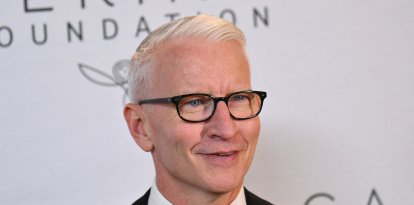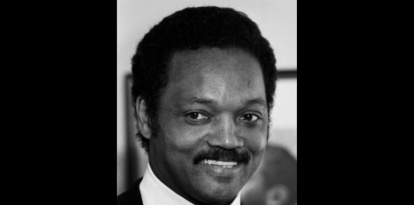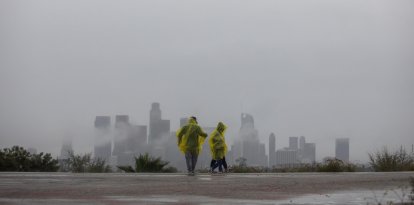Why do we talk about "climate crisis" when we mean "climate change"?
The new semantics driven by environmental activists, politicians and the media seeks to create a sense of urgency and tragedy through language.

Unsplash.
After years of talking about "climate change" and "global warming," nowadays people refer to the striking atmospheric phenomena as a "climate crisis." This change is anything but innocent. In reality, it is about the struggle between informative journalism and activist journalism.
The expression climate crisis is a self-serving creation of environmental activists, applauded and supported by politicians and the media that have made the ecological message their leitmotiv. The ultimate goal is to add an element of distress, immediacy, or disaster into the discourse.
"Climate change" in Paris
If we look at the climate change events held over the last few decades, we can see how it has evolved. In 2012, at the historic Paris Agreement, where a commitment was made to limit greenhouse gases, the term "climate change" was still being used. Four years later, also in the French capital, the Paris Agreement was signed, calling for greater commitment and efforts to address the situation of the planet. "Climate change" was, again, the term used in the conclusions.
Following the summit, a group of 20 Australian scientists published an open letter calling for action on the "climate emergency." It invited national and local governments, etc. to issue "climate emergency declarations. "This initiative was a great success, as can be seen on the website climaticemergencydeclaration.org. 2,278 jurisdictions have a climate emergency declaration. Among them, 18 are countries, not counting the fact that the European Union itself proclaimed its own. On the same page, it shows in detail who has joined the initiative.

'The Guardian' makes "climate crisis" official
The first media outlet to make the change official was The Guardian. The British newspaper published "Why the Guardian is changing the language it uses about the environment" on May 17, 2019. In it, the director, Katharine Viner, emphasized:
Viner insisted on justifying the need for change on the grounds:
"Direct existential threat"
The Guardian's editor pointed out big names such as Antonio Guterres, UN Secretary-General, or Professor Hans Joachim Schellnhuber, former advisor to Angela Merkel and Pope Francis, among others, as champions of the climate crisis concept. Guterres was one of the first to use it, in September 2018, to indicate that "we face a direct existential threat."
The importance of the change is reflected in the article "Is climate change actually a 'climate crisis'? Some think so" ("Is climate change really a climate crisis? Some people think so"), by Larry Labby, for Canadian Broadcasting Corporation, (CBC), Canada's public television channel:
Words to transform the world
This idea is echoed by University of Calgary cultural studies expert Jan Suselbeck. "Language influences how we feel, so if we change the terms we use about certain things, this makes an emotion appear or vanish. This is why language matters," he said. He also stressed "the power of repetition," because it makes people notice what is repeated, "and this changes the public perception of what really matters or not."
Labby collected the opinion of Sean Holman, professor of journalism at Calgary, on the change announced by The Guardian:
The defensive "whiff" of the "climate crisis"
In the same article, the explanation of the Canadian network's director of journalistic standards, Paul Hambleton, was enlightening:
CBC's decision was ultimately Solomonic. He urged caution when using "climate crisis" or "emergency," but did not prohibit his journalists from using them.
Difficult climate objectivity
The Canadian National Observer insists on the importance of how you communicate. In "Climate change or climate crisis? It's all in the framing," Geo Takach reflects on neutrality in journalism in the wake of this issue.
Takach admitted that it is really difficult to maintain objectivity in reporting the case at hand. He even brought one more element to the debate: the possibility that the use of a neutral tone might favor business as usual. In other words, it would be, in a way, taking sides in favor of capitalism and business interests over the preservation and well-being of the planet.
A term that has yet to take hold
This journalist looked up how often "climate crisis" was used on his platform. "A search of National Observer’s website reveals 256 occurrences of "climate crisis" in almost five years, with about half of those being in the last six months. The Globe and Mail took 18 years to log 322 such occurrences, about half in just the last two years, and even then, many of them were found in op-eds or quotes from sources." In other words, the term has not yet taken root.
In addition, when it comes to those who advocate repetition to raise awareness, Takach warns of the risk of achieving the opposite effect:
"Deniers"
Special mention should be made about how the progressive media and activists treat people who do not agree with the new climate theories. The increase in environmental activism, both in language and in the media, has led to discussions in which these people have been labeled as "deniers" instead of "skeptics" or "critics." This is reflected in the Guardian's stylebook and has been taken one stop further by the BBC: "You don't need a denier to balance the debate."

























